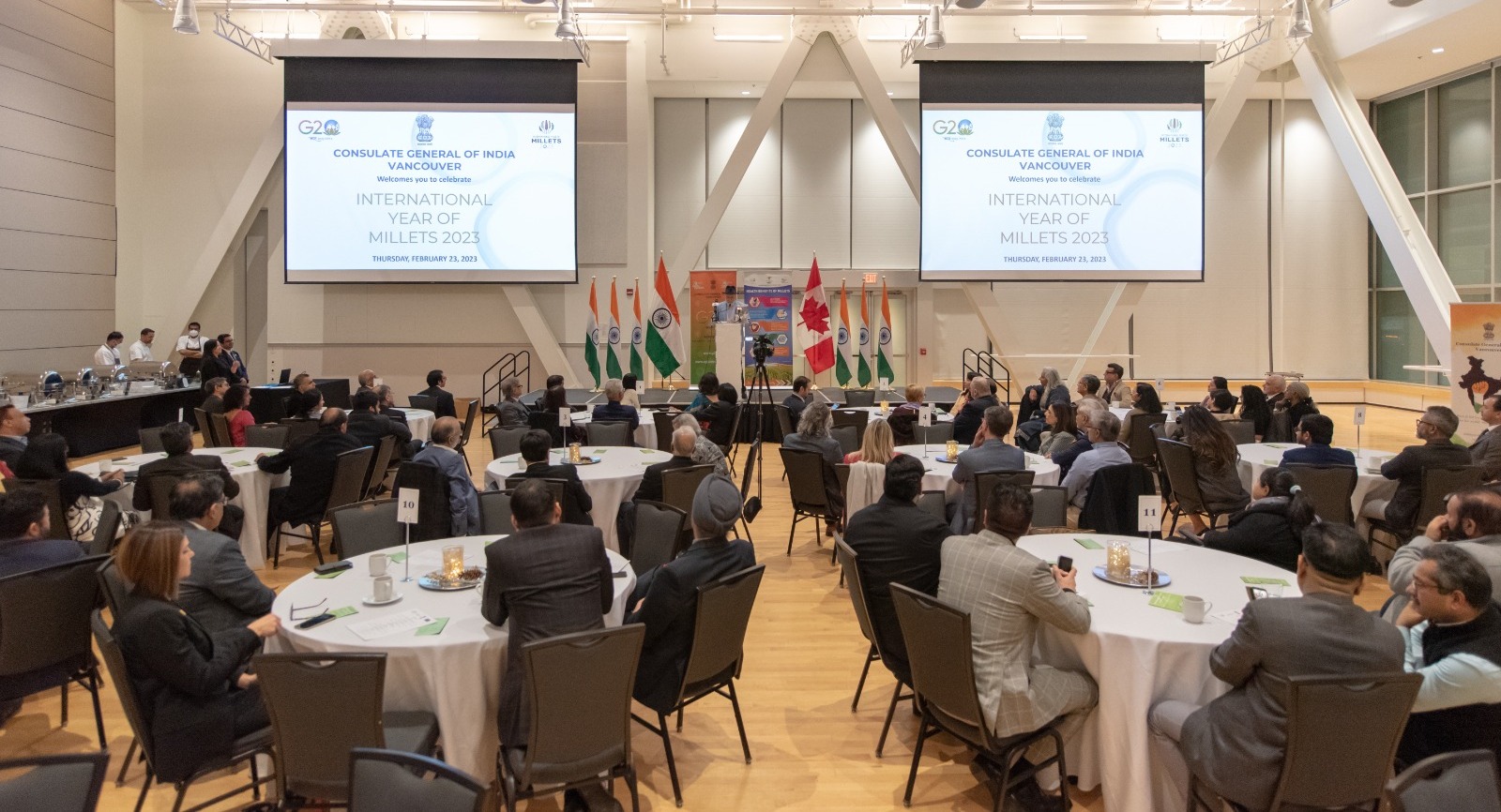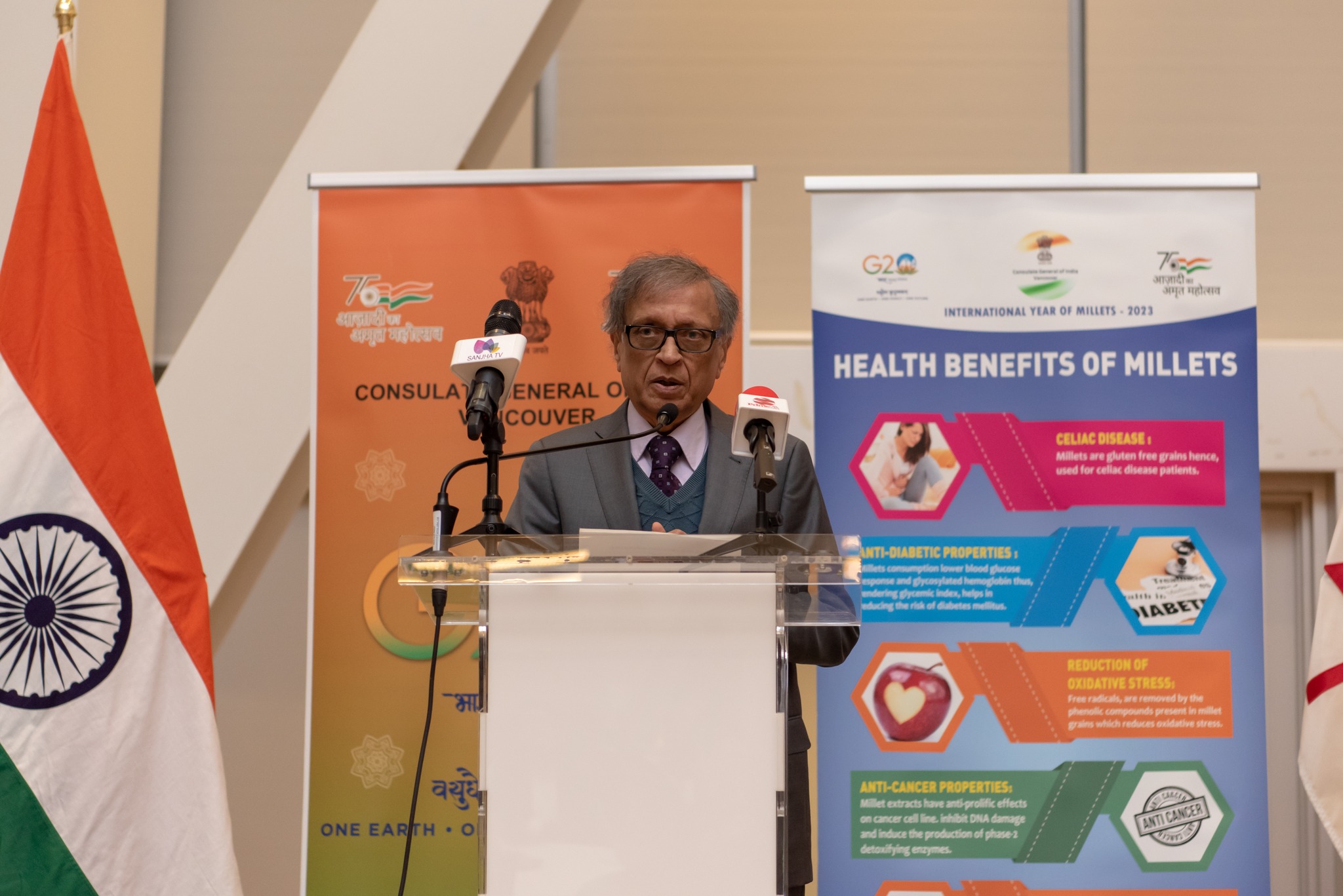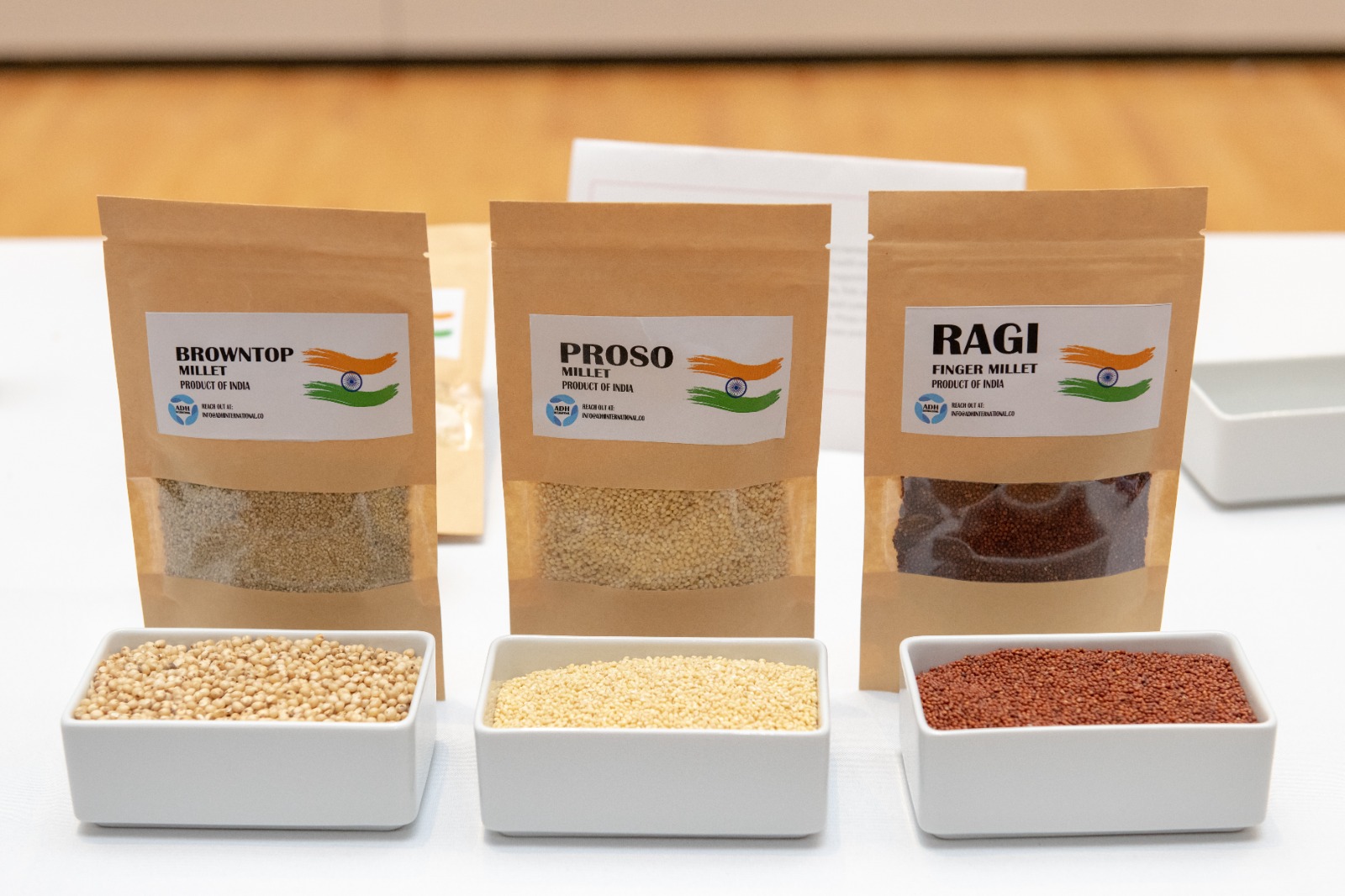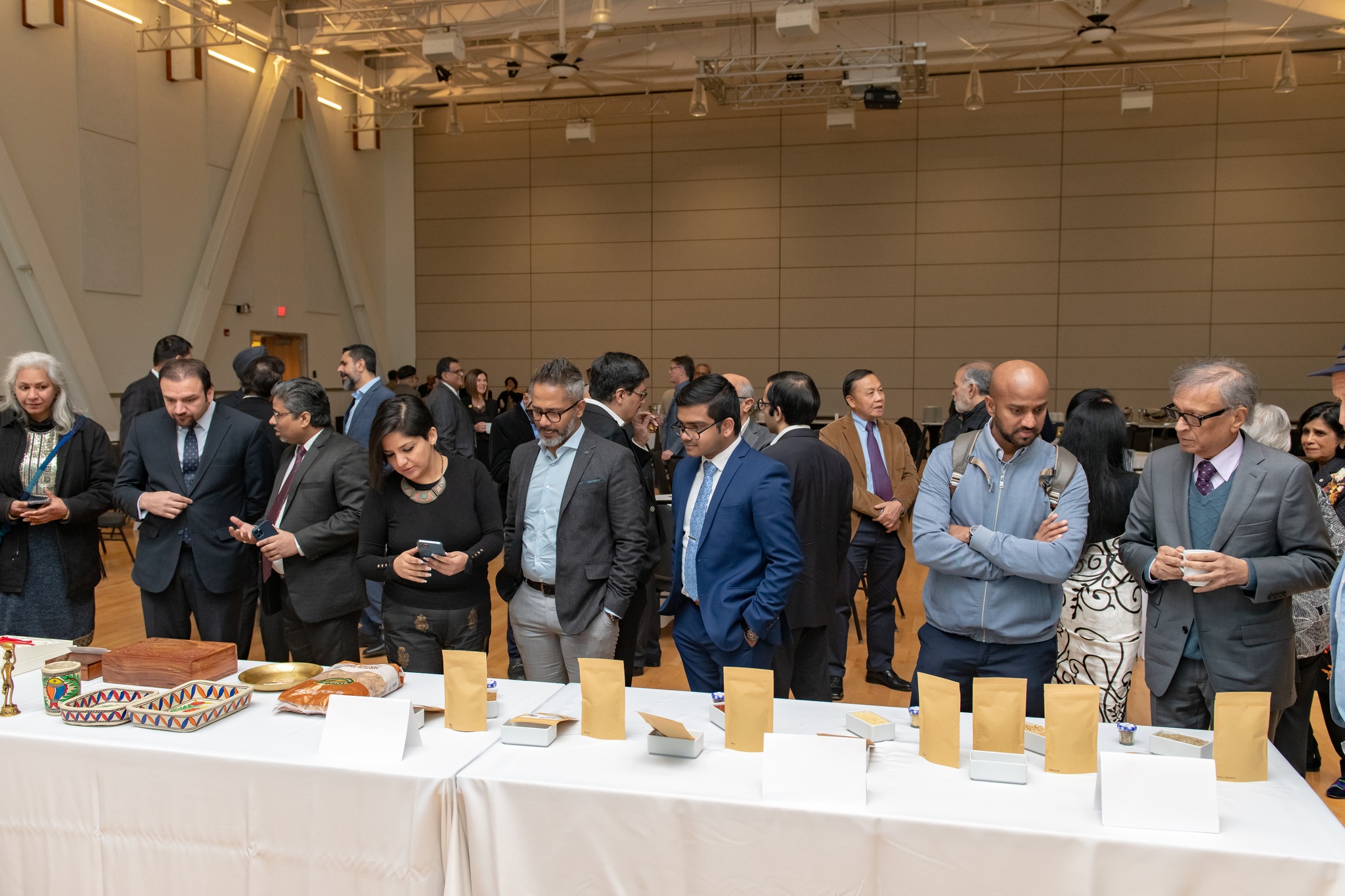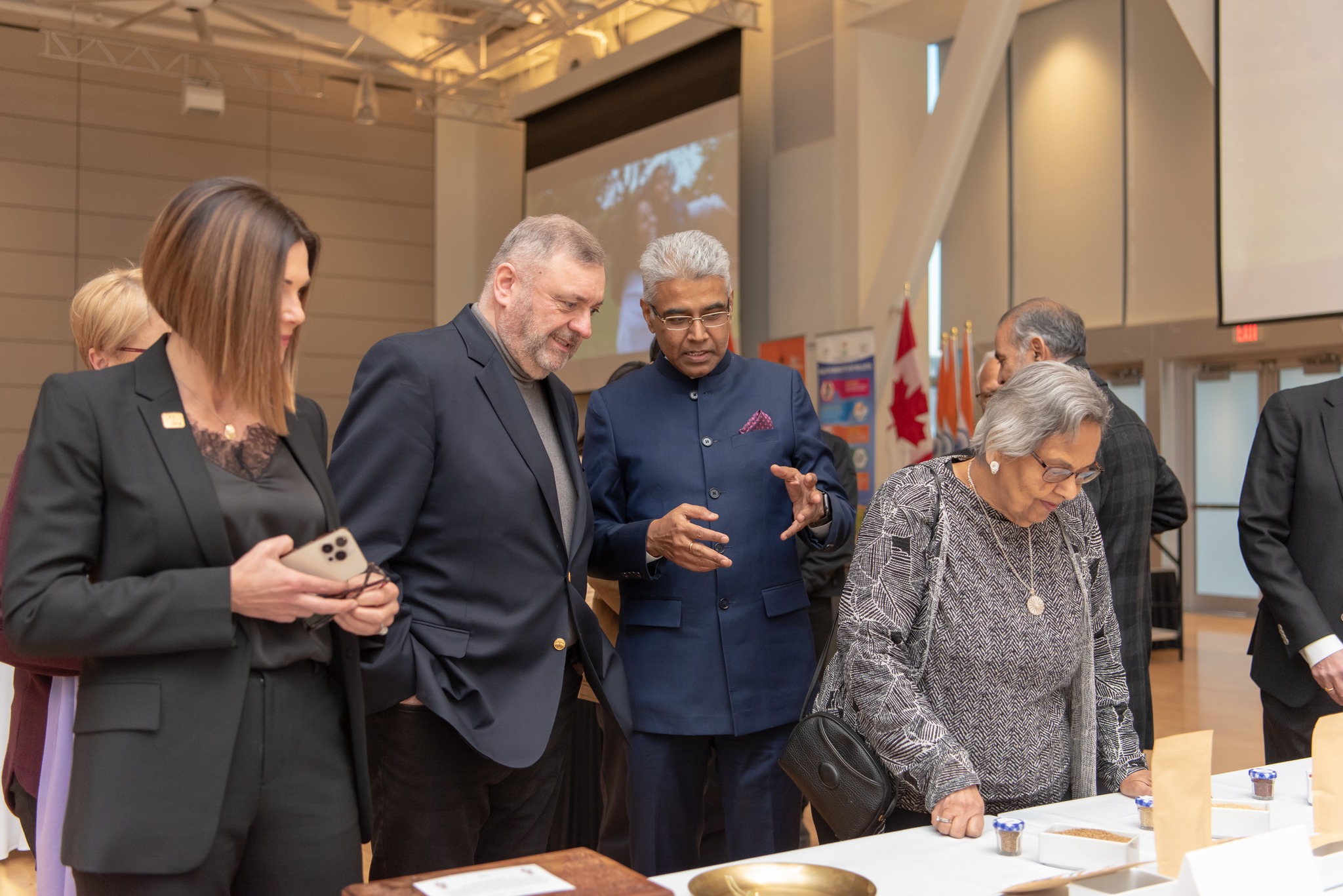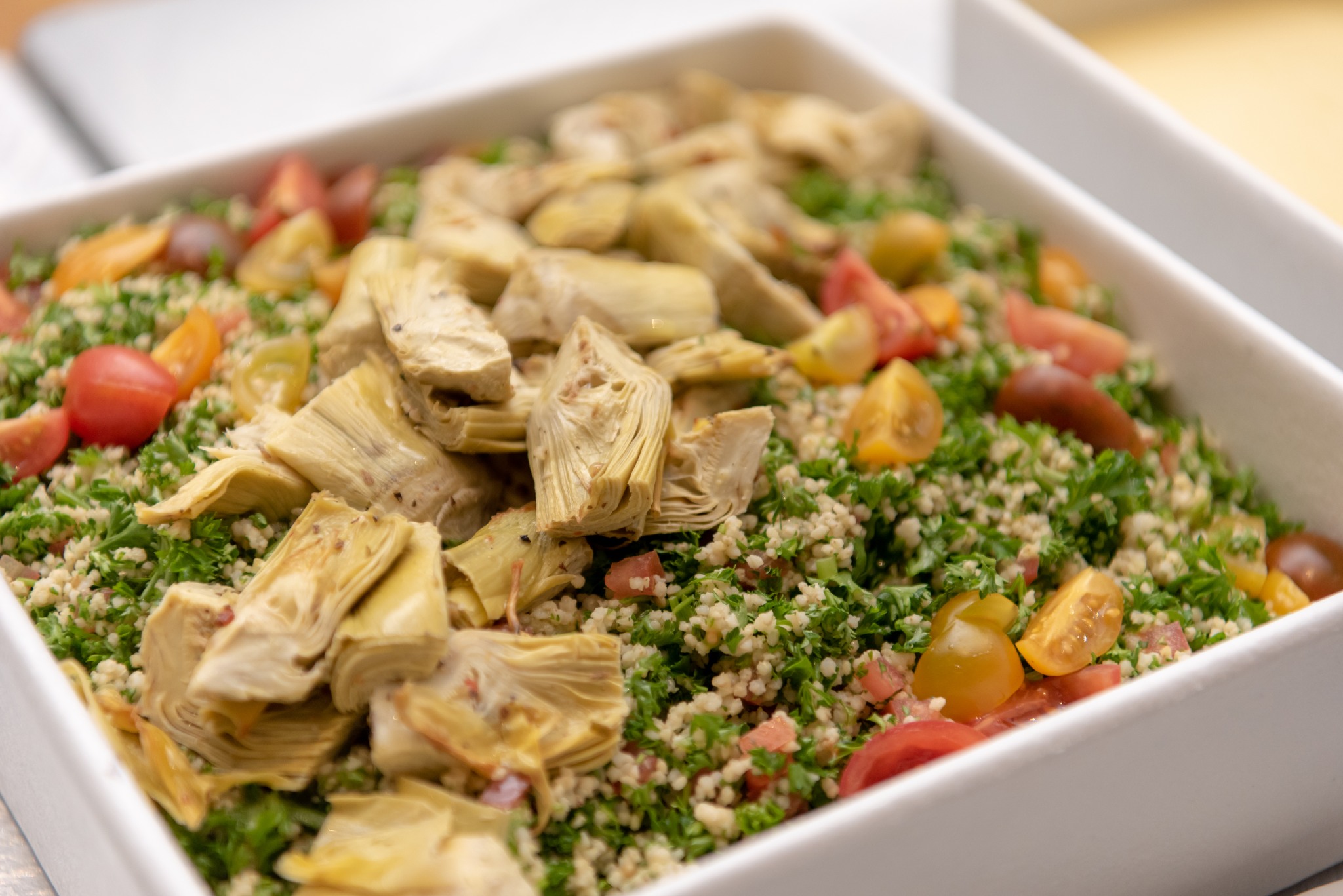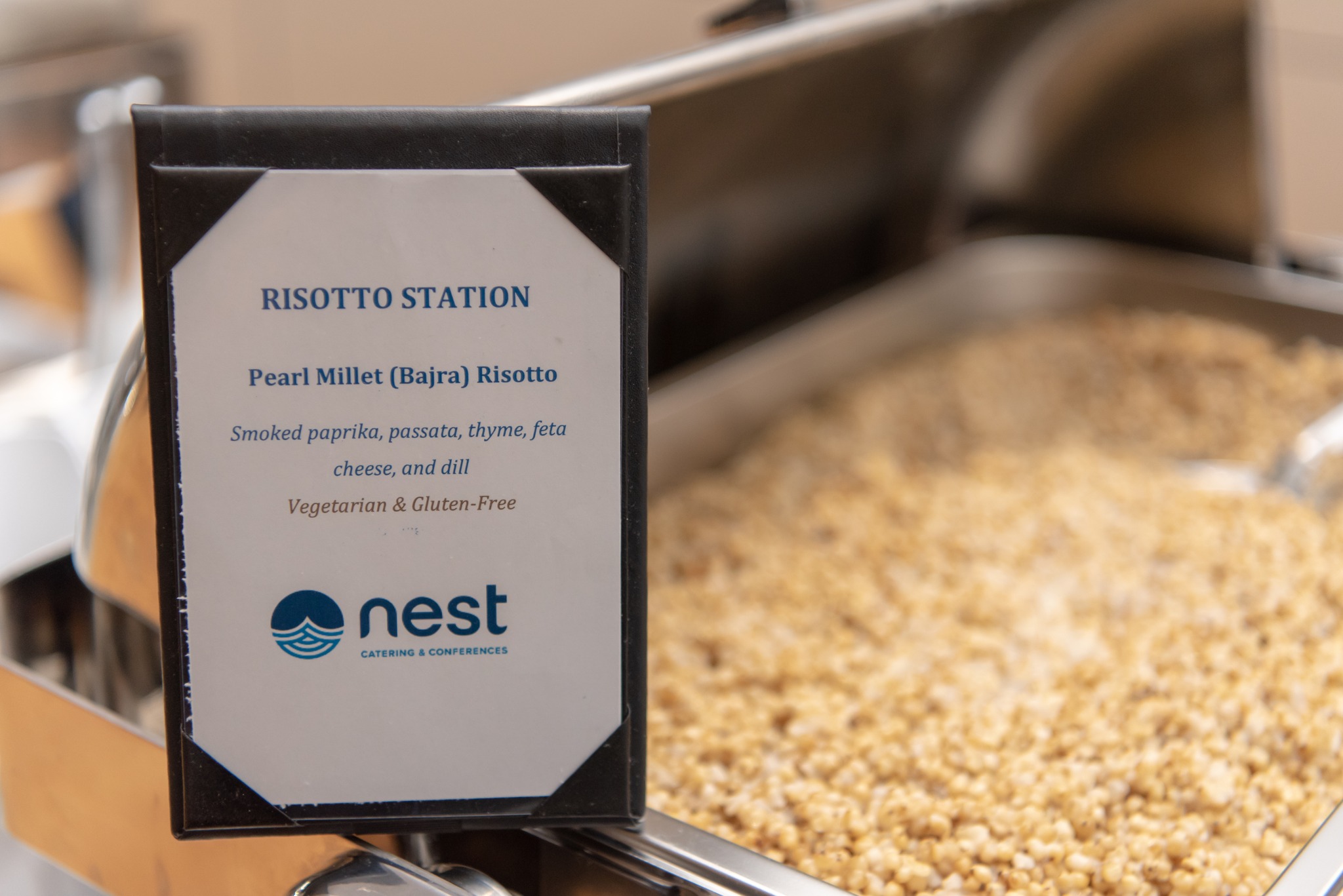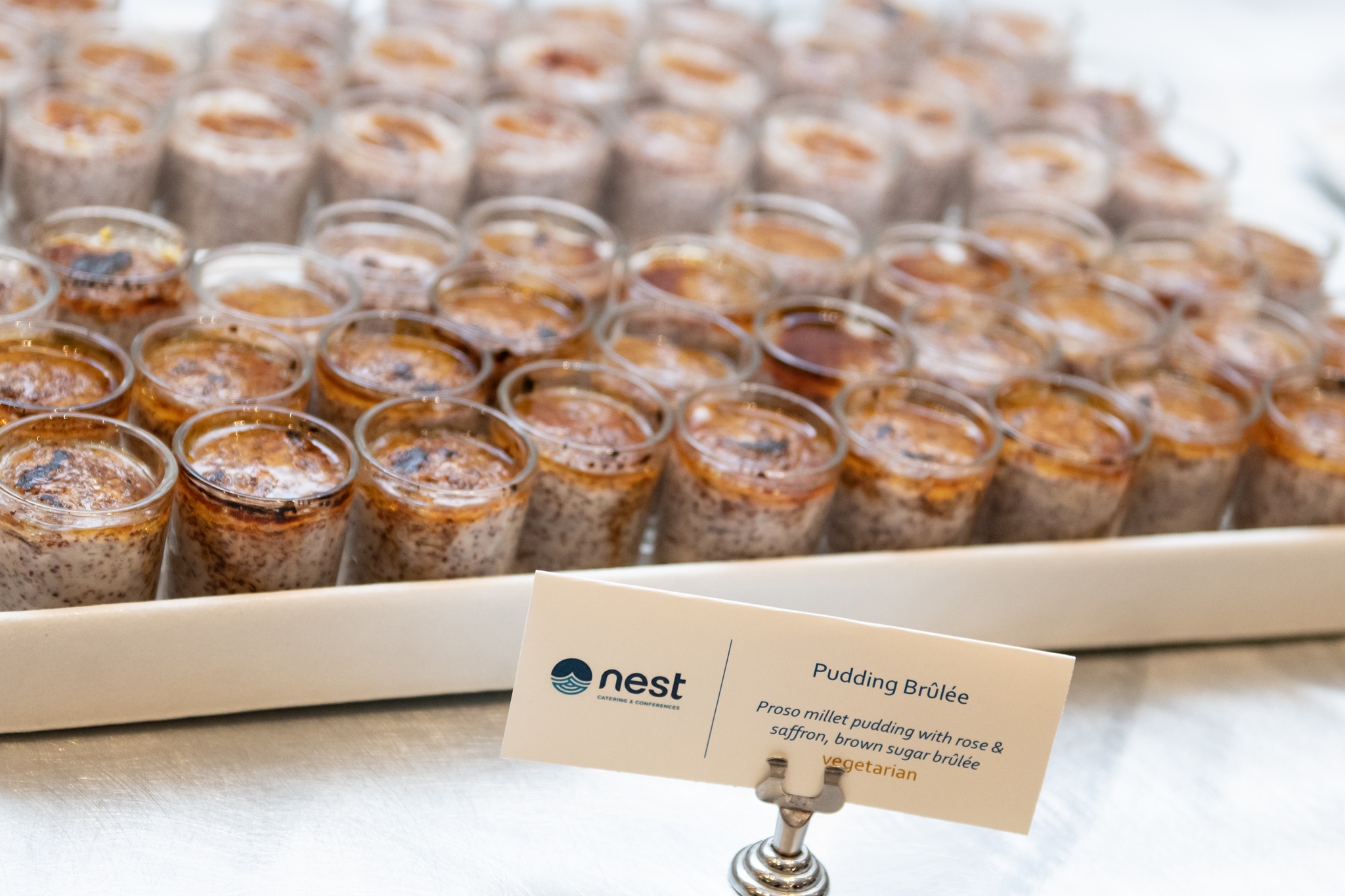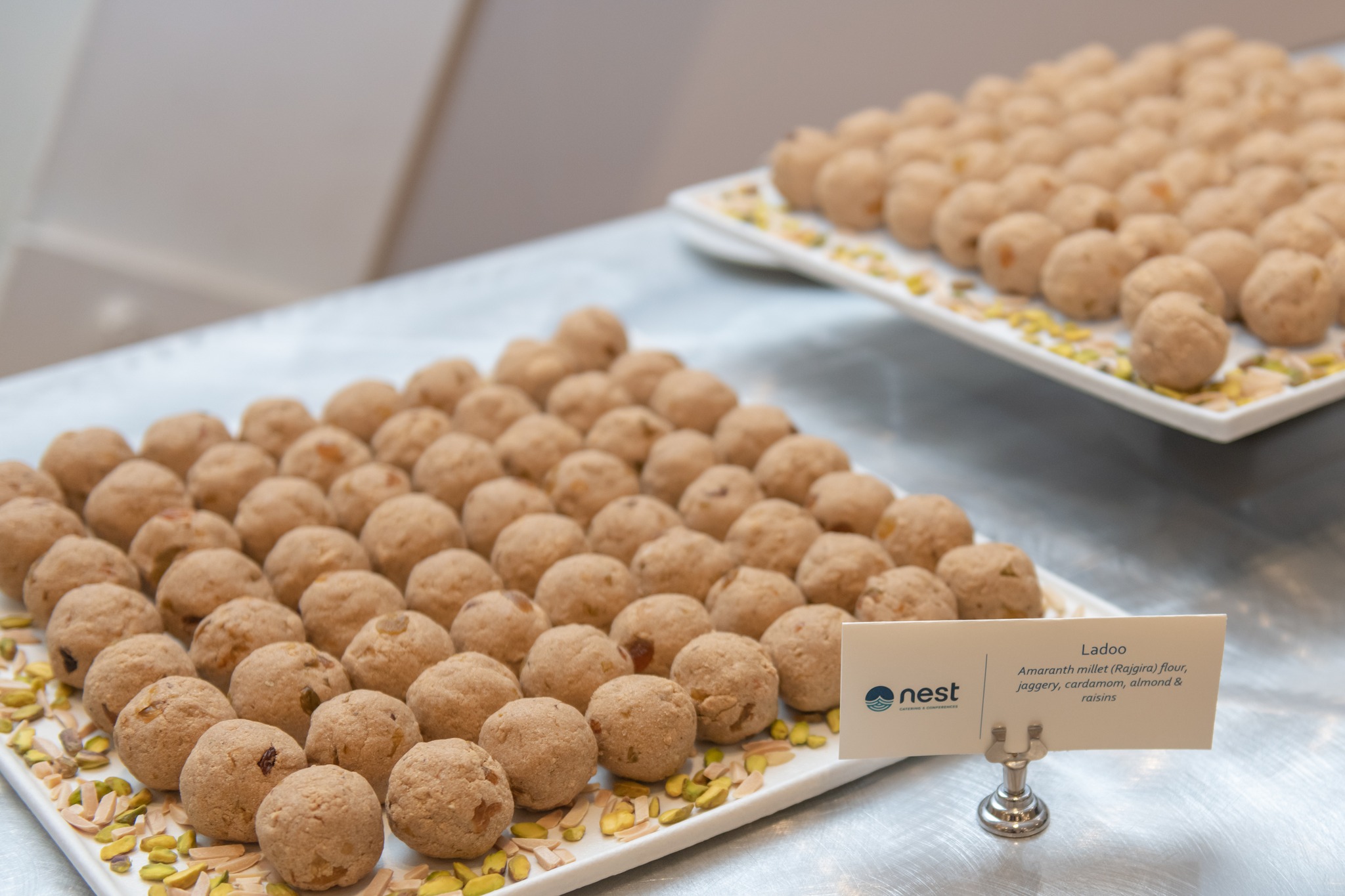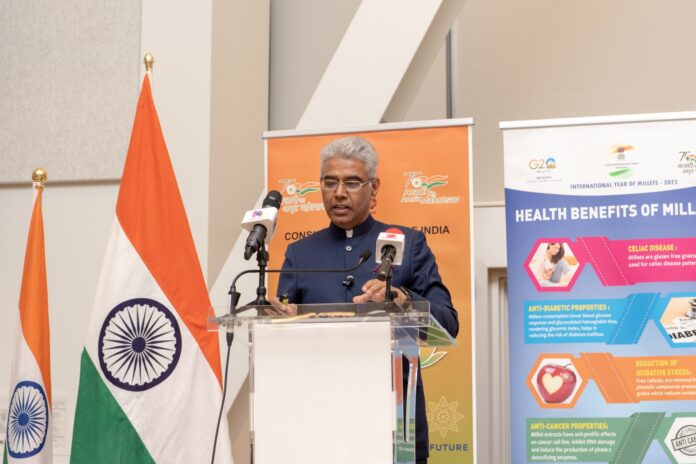IN celebration of the International Year of Millets 2023, the Consulate General of India in Vancouver organized a special event on February 23 to promote usage of millets.
Consul General Manish spoke on the benefits of millets and made a presentation on the various initiatives of Government of India and Food and Agricultural Organization (FAO) to promote millets. He highlighted the health benefits of different varieties of millets and suggested that everyone include millets in their daily food. He also presented ‘seven sutras’ of the Government of India to popularize the usage of millets.
Aaron Stephen, co-founder of Nature’s Path, one of the world’s largest independent organic cereal brands manufacturers, praised the efforts of the Government of India to promote the usage of millets. He remembered his visits to India in the early 60s and being introduced to the millet growing area in Rajasthan and also eating millet foods. He pointed out that millet is cultivated in the Saskatoon region of Canada and are widely used. He also noted that his company uses millets to produce value added products and has shown interest to import ragi millet from India.
Dr. Arun K Garg, President, Canada-India Network Society, and health practitioner, spoke on the medicinal value of millets and its impact on an individual’s health. He requested guests to use millets, which are useful in controlling several diseases such as diabetes and hypertension.
The event was attended by about 120 guests, which included members of the Consular Corps, the business community, the media and friends of India. Guests were served food made of millets, which was greatly appreciated by the guests.
Indian Prime Minister Narendra Modi’s video message on #IYM2023 was also screened.
At Modi’s initiative, the Government of India had proposed to the United Nations to declare 2023 as International Year of Millets (IYOM). The Indian proposal was supported by 72 countries and United Nations General Assembly (UNGA) declared 2023 as International Year of Millets (IYOM) in March, 2021.
Millets are important by virtue of their contribution to livelihood generation, food and nutritional security in various parts of the world. India is a major producer of millets, accounting for 80% of Asia’s production and 41% of global production. India’s average yield of millets (1,239 kg/hectare) is also higher than global average yield of 1,229 kg/hectare. India itself is a major consumer of millets and accounts for nearly 38% of the consumption of its domestic produce.
The humble millet has been grown in the Indian subcontinent for 5,000 years. There are many different kinds of millets, each with its own benefits and ways to include them in one’s diet. Indian millets are mainly classified into two types based on grain size – Major Millets (Sorghum, Pearl Millet, and Finger Millet) — which require minimal processing after harvesting and can be directly used after being washed — and Minor Millets (Foxtail Millet, Proso Millet, Kodo Millet, Barnyard Millet and Little Millet) — which are husked grains and come with an indigestible seed coat which is separated prior to consumption as a part of post-harvest processing.

